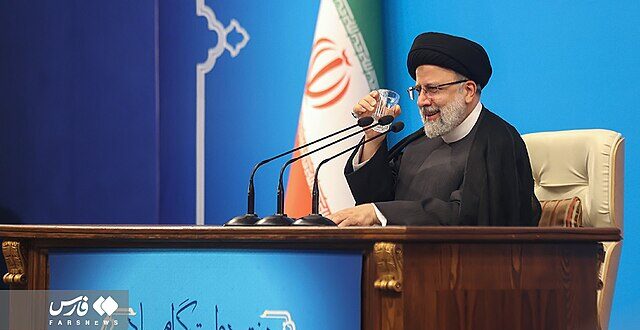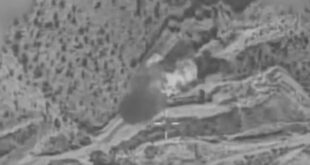The United States is considering blocking $6 billion that were released to Iran as part of a prisoner swap, Secretary of State Antony Blinken told reporters in Israel.
“We have strict oversight of the funds, and we retain the right to freeze them,” Blinken said.
Blinken made his remarks Thursday amid pressure from Congress, and less than a week after the Hamas terrorist group, which is supported by Iran, slaughtered more than 1,300 people in Israel, and captured around 150 civilian hostages.
According to multiple news reports, Deputy Treasury Secretary Wally Adeyemo, in a closed meeting with House Democrats, said the money “isn’t going anywhere anytime soon,” suggesting at least a temporary restriction on the use of the funds.
At the White House, National Security Council spokesperson John Kirby declined to address any discussions that might be ongoing as to the future of the funds.
“I’m not going to talk about diplomatic conversations one way or another. So, what I can tell you is that every single dime of that money is still sitting in a Qatari bank. Not one dime of it has been spent,” he said.
Simple process to block access
U.S. sanctions programs, like the one controlling the Iranian oil proceeds, are administered by a division of the Treasury Department known as the Office of Foreign Assets Control (OFAC). Any move to restrict the use of those funds would be managed by OFAC.
Though it is a U.S. agency, OFAC has a global reach because of the extent to which the international banking industry is connected to the United States. Violating OFAC requirements can render it impossible for non-U.S. banks to do business with U.S. banks, something few international institutions are willing to risk.
Erich Ferrari, an attorney who specializes in OFAC-related cases, told VOA it would not be a complicated process for the agency to switch off Iran’s access to the funds if the administration chooses to do so.
“There’s an administrative process — there has to be, because it’s a federal agency undertaking action. But it’s not a formal agency proceeding that has to go before an administrative law judge,” he said. “The administration makes a decision and then writes up a memorandum or directive to put it into effect.”
Origin of deal
The $6 billion represents the proceeds of oil sales and had been held in a South Korean bank until recently, when it was transferred to a bank in Qatar.
Under the agreement the Biden administration struck with Iran, the money was only to be used for the purchase of humanitarian supplies. No money would be provided directly to the Iranian government. Instead, it would be paid directly to pre-approved vendors of food, agricultural and medical supplies who would then deliver their goods to Iran.
The Biden administration faced sharp criticism, primarily from Republicans, when the deal was announced. The arguments focused on the fact that money is “fungible” — meaning if Iran received $6 billion worth of supplies as a result of the deal, that would free up money for it to spend on other things, such as support for terrorist organizations such as Hamas and Hezbollah.
After last weekend’s assault on Israel by Hamas, the criticism grew louder and began to include many Democrats. On Wednesday, a group of 20 Republican senators signed a letter calling on the Biden administration to block the funds.
“To stand by and allow Iran access to these funds as Hamas infiltrates Israel and murders, rapes, and mutilates countless Israelis is unconscionable,” they wrote. “Your administration claims these funds are only available for humanitarian use, but money is fungible, and there is a significant risk they could be used to further efforts by Iran or Hamas against Israel.”
Congressional action
By Thursday, multiple Democrats in Congress, particularly the approximately half-dozen members of the Senate facing tight reelection challenges in 2024, called on the administration to refreeze the $6 billion in funds.
In a statement released Wednesday, Democratic Senator Sherrod Brown said, “Congress’s priority right now must be providing robust military, economic, and humanitarian aid to support Israel as they defend themselves against Hamas’s horrific terrorist attack. … As we work to hold anyone who supports terrorism accountable, the administration must freeze the $6 billion in Iranian assets.”
U.S. Senate Minority Leader Mitch McConnell and Senator Josh Hawley, both Republicans, announced their intention to call a unanimous consent vote on a measure calling on the administration to refreeze the money. Under Senate rules, any member wishing to defeat such a measure would have to publicly state their opposition.
Reported by VOA
 Soldier of Fortune Magazine The Journal of Professional Adventurers
Soldier of Fortune Magazine The Journal of Professional Adventurers






